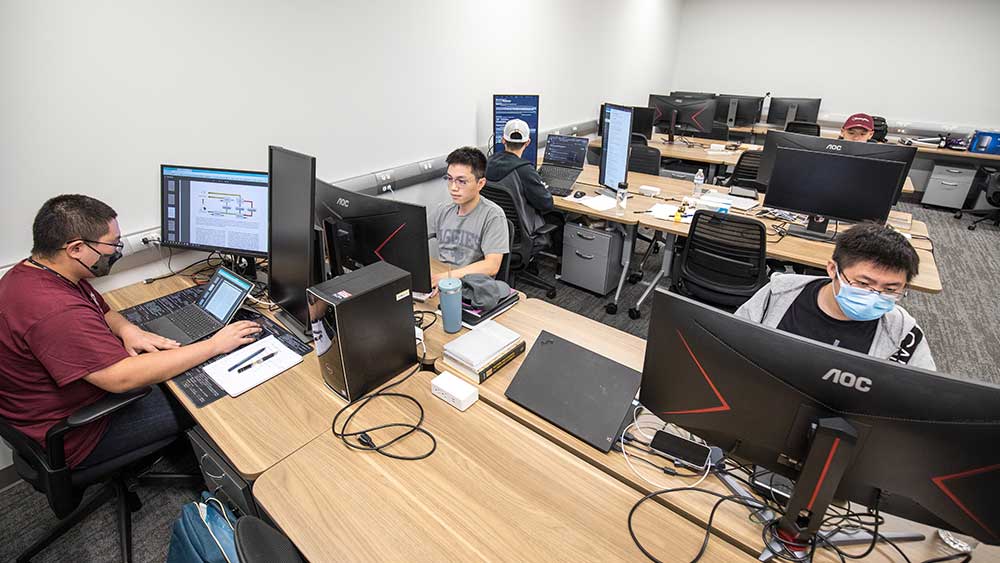
What is Cybersecurity?
Cybersecurity professionals protect critical systems from security breaches. Careers in this field are in high demand as companies seek to protect their sensitive data from attacks.
Majors that Could Lead to Cybersecurity Careers
Students interested in cybersecurity careers could start their career paths through several majors offered by the Texas A&M University College of Engineering.
See below for a list of some of our majors that could lead to a cybersecurity career.
- Computer engineering: Students learn about and experience hardware and software security for all systems, and how this security applies to company information and national security.
- Computer science: Our students study varied aspects of cybersecurity, from software engineering and networking, to cybersecurity law, risk and cryptography to make them valuable assets in a variety of fields needing modern electronic security.
- Electrical engineering: Within this major, topics such as hardware security, secure networks and communication will be taught, providing students with valuable knowledge used in a cybersecurity career.
- Electronic systems engineering technology: Electronic systems engineering technology majors will learn about configuring secure networks, understanding network security protocols and building secure internet-connected systems.
- Industrial and systems engineering: Industrial engineers take classes that teach them how to protect and defend consumers by creating safe and secure systems.
- Mechanical engineering: Mechanical engineers will gain many skillsets, such as designing and analyzing security systems, tracking and snaring hackers, assessing system weak points and vulnerabilities, and designing/implementing problem-solving strategies when systems are attacked.
- Multidisciplinary engineering: The multidisciplinary engineering major combines core cybersecurity courses with biomedical, computer science and electrical engineering. As the digital age advances, students will learn how to assist organizations (public, private, non-profit and governmental) on cyber systems for the security, safety and privacy of the individuals and enterprises they serve.
- Multidisciplinary engineering technology: Embedded systems, cyber-physical and internet of things are critical infrastructures that need to be secured. Students will take classes that teach them how to accomplish this.
- Ocean engineering: Ocean engineers oversee the installation and protection of undersea cybersecurity cables and develop cybersecurity protection systems for ports and harbors.